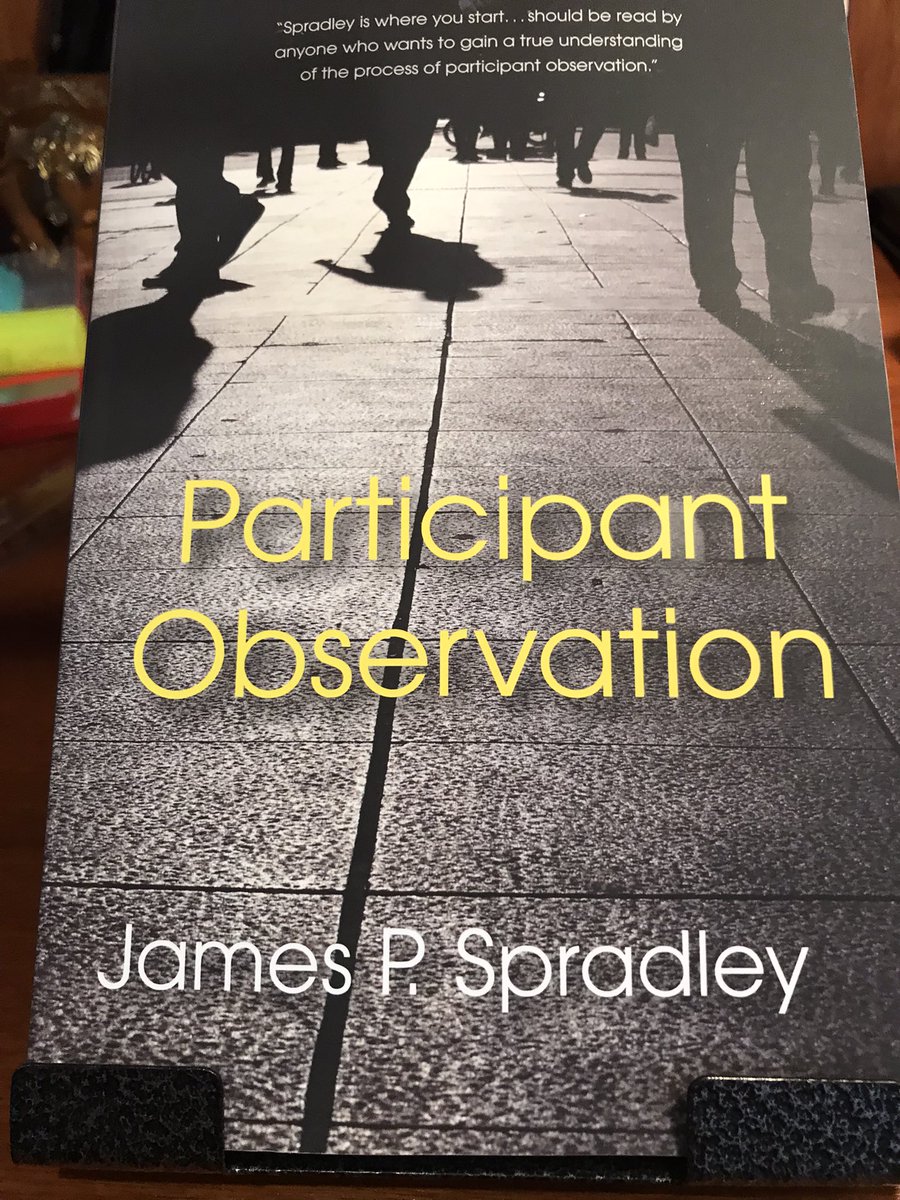
#RPVTipe I feel somewhat embarrassed to not have come across this book earlier in my career given the many, many books I’ve read on ethnography. Basically, Spradley does what I want to do with my own books: walk the newbie through the ropes: how do you capture data, analyze, etc 

Having so many languages to choose from, Spradley chose to speak the truth. You can, in fact, learn ethnography and participant observation from the start, as a total newcomer. And his book helps the reader do exactly that.
Spradley writes in a very accesible style #RPVBooks
Spradley writes in a very accesible style #RPVBooks

I found Spradley’s book not only incredibly insightful but also very didactic. Diagrams, tables, figures and guidelines all contribute to making it an easy choice for how to conduct ethnography, analyze the data y write up the results.
Strange that the book is titled Participant Observation when the reality is that Spradley covers MUCH MORE material.
10/10 very strongly recommend.
10/10 very strongly recommend.
• • •
Missing some Tweet in this thread? You can try to
force a refresh




